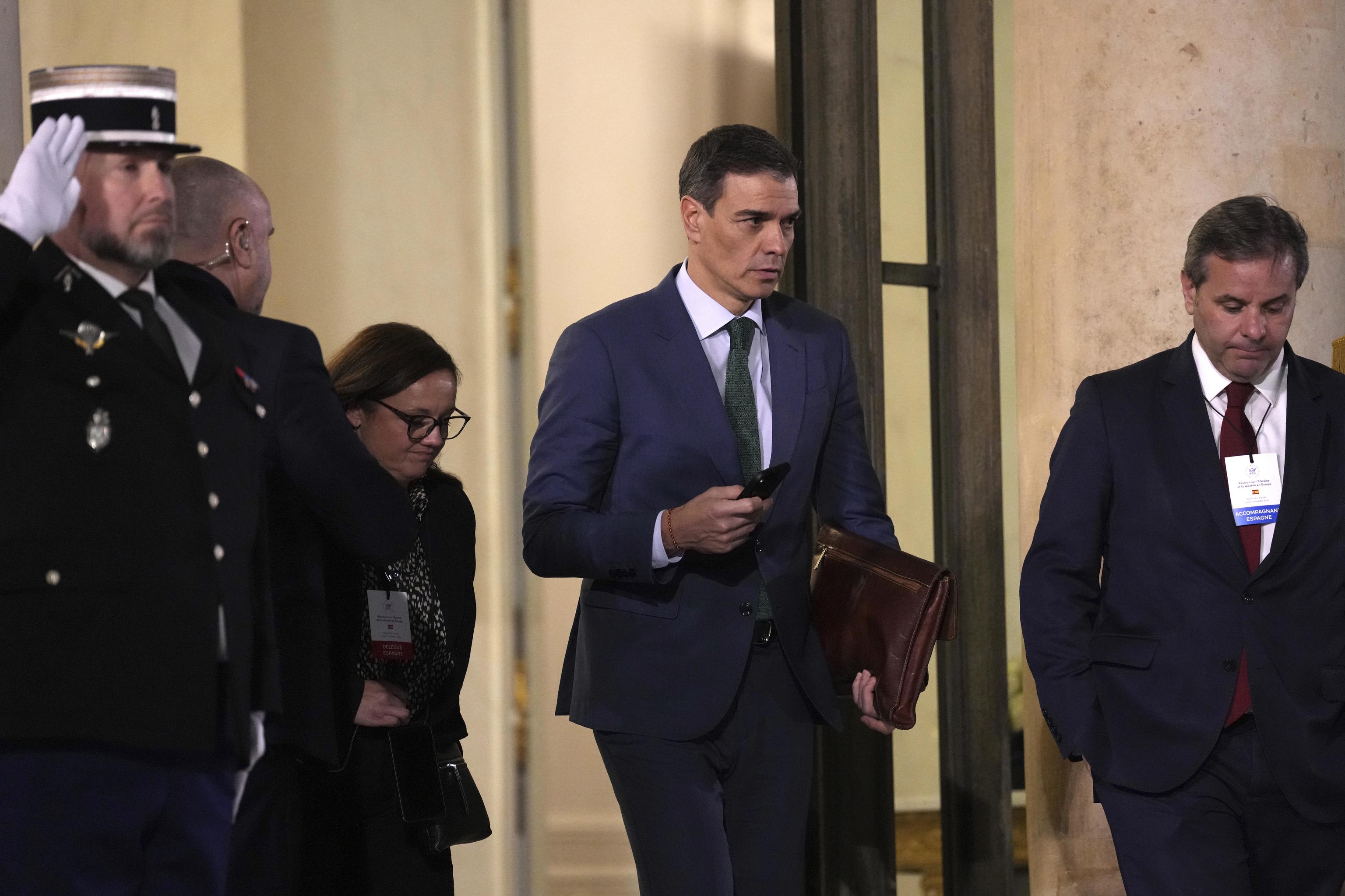For eight editions, the Chinese city of Guangzhou hosted the Imperial Springs International Forum (ISIF), an event promoted by China to connect the Asian superpower with the rest of the world, share Beijing's vision on the need to bet on a new multipolar world order, and discuss international cooperation. Last December, for the first time, this forum was held in Madrid.
Over a hundred political leaders, diplomats from 40 countries, businessmen, and international analysts spent two days at the Eurostars Madrid Tower Hotel. The event, organized by Club de Madrid, an influential group of former heads of state and academics with close ties to China, even included a reception with King Felipe VI. However, it barely resonated in the international press, except for extensive coverage in Chinese state media, which broadcasted a letter from President Xi Jinping congratulating the sharing of China's proposals in a space aimed at improving exchanges and understanding between China and the rest of the world.
Beijing's soft power, currently thriving amid the gaps left by Donald Trump's isolationist and confrontational policies in the United States, is evident in events like the forum held in Madrid. It is a calculated charm offensive that is proving particularly successful in Spain, thanks in part to the significant investments coming from Chinese companies, especially in clean energy projects.
"Spain is trying to position itself as a bridge between China and Europe. Following President Pedro Sánchez's official visit last September, Spain abstained from voting on tariffs for Chinese electric cars in the EU, and now China is heavily investing in Spain's goal of becoming a leader in green energy," stated an analysis published on the English news channel CGTN's website, which is part of a media organization under the control of the Chinese Communist Party's Propaganda Department.
During that trip to China, Sánchez returned with an agreement from the giant Envision Energy to invest ¤1 billion in Spain in a green hydrogen industrial park. Hygreen Energy, another Chinese electrolyzer manufacturer, also announced a ¤2 billion investment in green hydrogen projects in Andalusia, a clean energy source obtained by decomposing water through the electrolysis process.
China Three Gorges Europe (CTG), the largest clean energy group in the Asian country, acquired the Mula solar plant in Murcia, Spain, last year. The Chinese multinational Chery, in partnership with the Spanish brand Ebro, will start producing electric cars at the former Nissan facilities in the Barcelona Free Trade Zone.
Chinese tech company CATL and the Stellantis group will build a gigafactory in Zaragoza, which recently had its mayor, Natalia Chueca, traveling to China accompanied by Aragonese businessmen in February. Chueca succeeded in closing a deal with another Chinese renewable energy giant, TDG Ibernavitas, to establish its European headquarters in Zaragoza, with an expected investment of over ¤120 million and the creation of up to 800 direct jobs.
Like many Spanish mayors whenever the world's second-largest economy opens its doors, Chueca signed a twinning agreement - synonymous with tourism and trade projects - with a Chinese city, Nanjing, a modern city of nine million inhabitants located 300 kilometers from Shanghai, which is twinned with Barcelona.
Last year, taking advantage of another extensive trip to China by the mayor of Seville, José Luis Sanz, a twinning agreement was signed between Seville and the city of Chongqing. A year earlier, the City Council of Alicante did the same with the port city of Penglai, neighboring Yantai, which a couple of years ago sealed a commercial and cultural collaboration agreement with Gijón. Valencia did likewise with the historic Xi'an, home to the famous terracotta warriors, and Murcia with another city named Nanning, where an exchange of ham for jasmine flowers has flourished.
"I see a very open China to the world," said Andalusia's regional president, Juanma Moreno, in an interview with the official PCCh newspaper last September from Beijing. He returned to Spain with commitments of ¤2.5 billion in industrial investments for six Andalusian provinces, mainly for renewable projects.
A few days ago, on the sidelines of the hectic Munich Security Conference, Spanish Foreign Minister José Manuel Albares met with Chinese Foreign Minister Wang Yi, a heavyweight from Beijing's powerful Politburo who visited Spain in February last year, being received by President Pedro Sánchez and King Felipe VI.
During the Munich meeting, the Chinese minister welcomed more Spanish companies and praised the health of bilateral relations. Last week, the European Council on Foreign Relations (ECFR), a Berlin-based think tank, released a survey analyzing European public opinion on the state of global alliances. The report concluded that in Southern Europe, many citizens in countries like Spain view Beijing as an "ally," while in Germany, Denmark, the United Kingdom, and France, the majority hold the opposite view, seeing China as a "rival" or "adversary."
